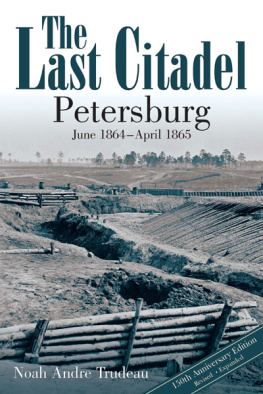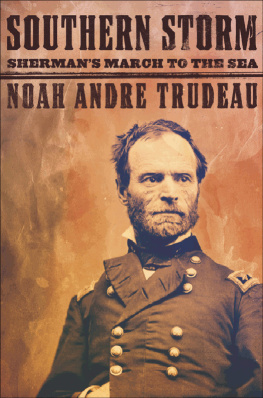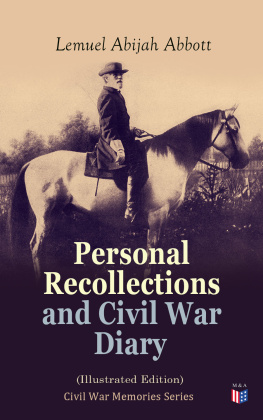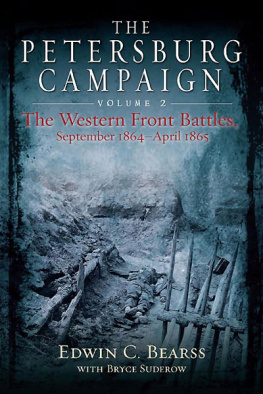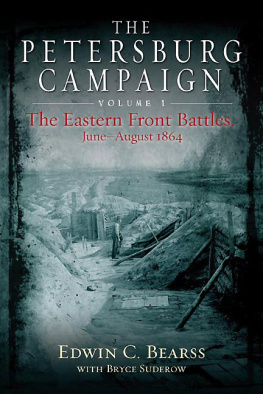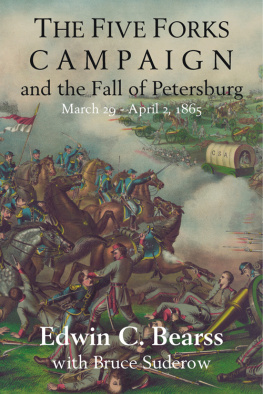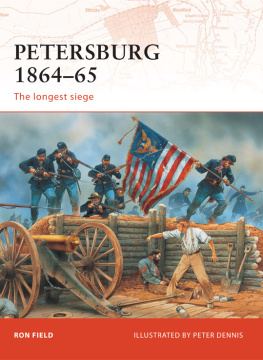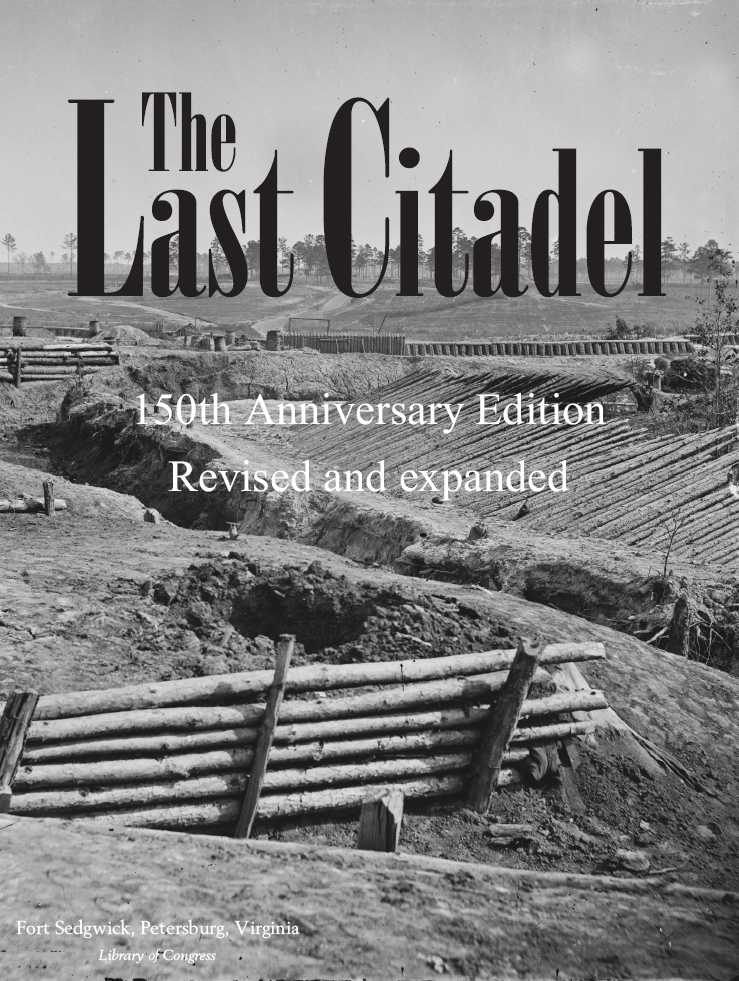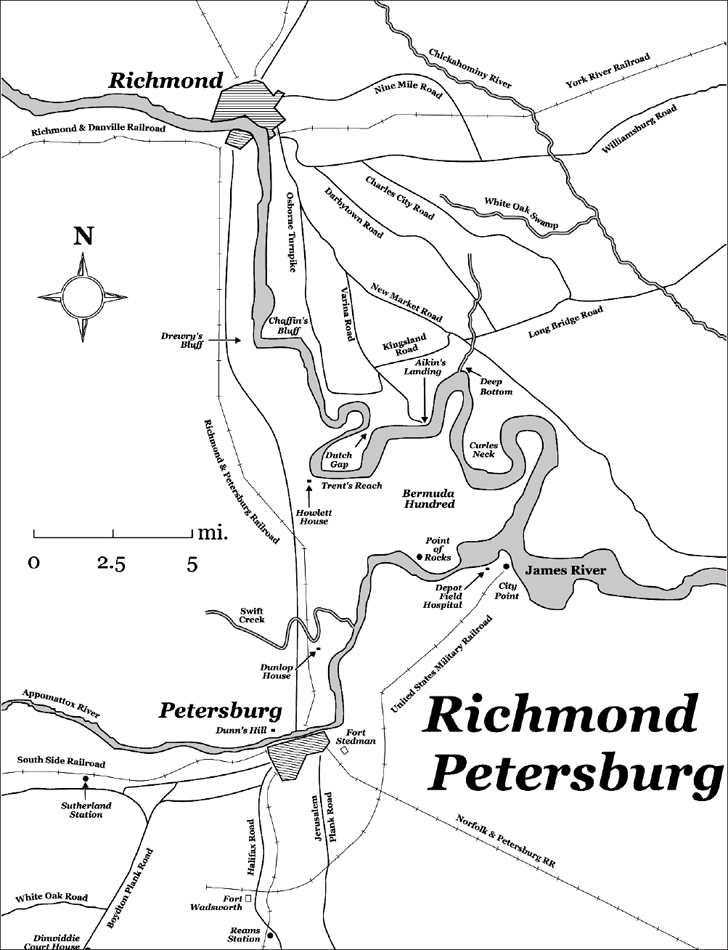Noah Andre Trudeau - The Last Citadel: Petersburg, June 1864 - April 1865
Here you can read online Noah Andre Trudeau - The Last Citadel: Petersburg, June 1864 - April 1865 full text of the book (entire story) in english for free. Download pdf and epub, get meaning, cover and reviews about this ebook. City: El Dorado Hills, year: 2014, publisher: Savas Beatie, genre: History. Description of the work, (preface) as well as reviews are available. Best literature library LitArk.com created for fans of good reading and offers a wide selection of genres:
Romance novel
Science fiction
Adventure
Detective
Science
History
Home and family
Prose
Art
Politics
Computer
Non-fiction
Religion
Business
Children
Humor
Choose a favorite category and find really read worthwhile books. Enjoy immersion in the world of imagination, feel the emotions of the characters or learn something new for yourself, make an fascinating discovery.
- Book:The Last Citadel: Petersburg, June 1864 - April 1865
- Author:
- Publisher:Savas Beatie
- Genre:
- Year:2014
- City:El Dorado Hills
- Rating:5 / 5
- Favourites:Add to favourites
- Your mark:
The Last Citadel: Petersburg, June 1864 - April 1865: summary, description and annotation
We offer to read an annotation, description, summary or preface (depends on what the author of the book "The Last Citadel: Petersburg, June 1864 - April 1865" wrote himself). If you haven't found the necessary information about the book — write in the comments, we will try to find it.
The Petersburg campaign began on June 9, 1864, and ended on April 3, 1865, when Federal troops at last entered the city. It was the longest and most costly siege ever to take place on North American soil, yet it has been overshadowed by other actions that occurred at the same time period, most notably Shermans famous March to the Sea, and Sheridans celebrated Shenandoah Valley campaign. The ten-month Petersburg affair witnessed many more combat actions than the other two combined, and involved an average of 170,000 soldiers, not to mention thousands of civilians who were also caught up in the maelstrom. By its bloody end, the Petersburg campaign would add more than 70,000 casualties to the wars total.
Petersburg was the key to the war in the East. It lay astride five major railroad lines that in turn supplied the Confederate capital, Richmond. Were Petersburg to fall, these vital arteries would be severed, and Richmond doomed. With the same dogged determination that had seen him through the terrible Overland Campaign, Lieutenant General Ulysses S. Grant fixed his sights on the capture of Petersburg. Grants opponent, General Robert E. Lee, was equally determined that the Cockade City would not fall.
Trudeau crafts his dramatic and moving story largely through the words of the men and women who were there, including officers, common soldiers, and the residents of Petersburg. What emerges is an epic account rich in human incident and adventure. Based on exhaustive research into official records and unpublished memoirs, letters, and diaries, as well as published recollections and regimental histories, The Last Citadel also includes 23 maps and a choice selection of drawings by on-the-spot combat artists.
With The Last Citadel, the Petersburg campaign at last emerges from the shadows to take its rightful place among the unforgettable sagas of the Civil War.
Praise for the original edition of The Last Citadel
The Last Citadel is most impressive, almost like an account of a newly discovered war. How Trudeau amassed so much fresh material is a wonder. I found the narrative powerful and compelling and the air of authenticity complete. The is the first real Civil War narrative I have read in years.
-- Burke Davis (1913-2006), author of The Long Surrender and To Appomattox: Nine April Days
The Last Citadel succeeds marvelously at presenting the first full portrait of an immensely important operation, the siege of Petersburg. This is popular history at its finest grounded in very impressive research, written with literary flair, and filled with new testimony from myriad witnesses whose voices help bring into focus one of the wars most important episodes. The Last Citadel merits the attention of anyone seeking to understand the final phase of the war in Virginia.
-- Gary W. Gallagher, John L. Nau III Professor in the History of the American Civil War, University of Virginia, author of Becoming Confederates: Paths to a New National Loyalty.
In the same style as his previous work, Bloody Roads South, Trudeau provides the reader with an easy-to-understand, month-by-month, topic-by-topic description of one of the lesser-known campaigns of the war. With its easy-to-understand maps, period-artist illustrations, and thought-provoking analysis of the entire military operation, this book will be a must for enthusiasts on all levels of interest.
-- Chris Calkins, Manager of Sailors Creek Battlefield Historical State Park
Trudeau has, with the publication of The Last Citadel, enhanced his reputation as a worthy successor to Bruce Catton. Blending his journalistic talents with those of a historian, Trudeau has given us an outstanding overview of the campaign, one that underscores that good history is more exciting and relevant than the best novel.
-- Edwin C. Bearss, Chief Historian Emeritus, National Park Service
Noah Andre Trudeau: author's other books
Who wrote The Last Citadel: Petersburg, June 1864 - April 1865? Find out the surname, the name of the author of the book and a list of all author's works by series.

